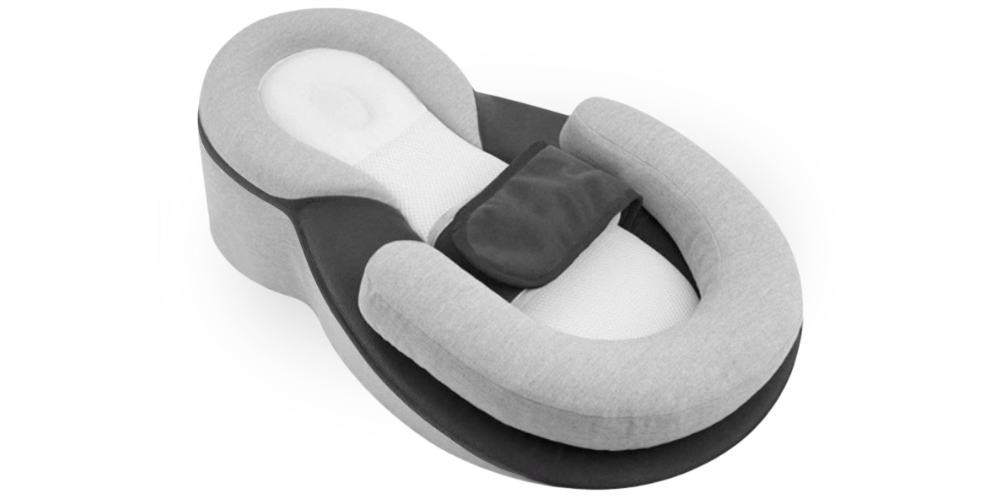Before your baby was born, everyone had advice.
“Sleep when the baby sleeps.”
“Enjoy every moment.”
“It goes by so fast.”
But no one really told you what it feels like to go weeks — or months — without a full night of sleep.
No one told you about the nights when you’re so tired your body shakes.
Or the mornings when you stare at yourself in the mirror and barely recognize the woman looking back.
If you’re there right now — exhausted, overwhelmed, and running on fumes — you’re not broken. You’re a mom in survival mode.
Note: This article offers emotional support and general information. For medical concerns, always consult your healthcare provider.
Sleep Deprivation Isn’t Just Tiredness — It’s a Whole-Body Experience
Postpartum sleep deprivation isn’t just “being tired.”
It affects your mind, mood, and body in ways that catch many new mothers off guard:
-
Foggy thinking and forgetfulness
-
Emotional outbursts or numbness
-
Anxiety or panic at night
-
Headaches, body aches, and eye strain
-
Feeling detached from yourself
Combine that with a baby struggling with reflux — crying through the night — and it’s no wonder so many moms feel like they’re drowning.
This is not weakness. It’s biology, exhaustion, and love colliding at once.
The Silent Pressure to “Keep It Together”
One of the hardest parts of postpartum sleep deprivation is the pressure.
Society often expects new mothers to:
-
Bounce back quickly
-
Be grateful and glowing
-
“Enjoy every second”
So when you’re falling apart at 3 a.m., covered in spit-up and tears, you might feel guilty — like you’re not strong enough.
But the truth is: this isn’t something you “power through” with willpower.
You need rest, support, and realistic expectations.
Reflux Makes It Even Harder — And It’s Not Your Fault
A baby with reflux doesn’t just wake once or twice a night.
They wake constantly. They cry. They need to be held upright. You start dreading bedtime, because night doesn’t mean rest — it means another battle.
This is why reflux isn’t just a baby issue.
It’s a mom issue, too.
Every hour of broken sleep chips away at your emotional reserves. That’s why finding ways to ease your baby’s discomfort is also an act of self-care.
How to Protect Your Energy When Sleep Feels Impossible
Even if full nights of sleep aren’t realistic right now, there are ways to protect your energy and reduce the weight of exhaustion.
1. Lower the bar.
Your home doesn’t have to be perfect. Meals don’t have to be fancy. Your worth isn’t measured by how productive you are.
2. Share the night shift.
If possible, rotate feedings or upright time with your partner. Even a few uninterrupted hours can change how you feel.
3. Build a soothing routine for both of you.
Dim lights, soft voices, consistent steps. It helps your baby settle faster — and your nervous system too.
4. Create a safe, comfortable sleep setup.
A gentle incline with a safety-tested sleep solution like DreamNest™ can ease reflux discomfort and reduce frequent wake-ups.
More comfort for your baby often means more sleep for you.
👉 Try DreamNest™ 100% risk-free for 90 nights — and reclaim your nights, one stretch at a time.
You Deserve Support, Not Superhero Expectations
You shouldn’t have to be a superhuman mom who thrives on no sleep.
You deserve support — real, practical support.
-
Ask for help. From your partner, family, or friends.
-
Say yes to shortcuts. Meal delivery, cleaning help, whatever gives you breathing room.
-
Rest without guilt. Your worth doesn’t come from doing it all.
Your baby doesn’t need a perfect mom. They need a present one — and presence requires rest.
Warning Signs to Watch For
Sleep deprivation can tip into something more serious.
Call your healthcare provider if you notice:
-
Intense mood swings or persistent sadness
-
Trouble bonding with your baby
-
Panic attacks or racing thoughts
-
Thoughts of harming yourself or your baby
Reaching out for help is not weakness — it’s strength. You matter, too.
FAQs
How long does postpartum sleep deprivation last?
It varies, but it’s most intense in the first 3–4 months. It eases as your baby’s sleep and digestion mature.
What if my baby’s reflux is making sleep impossible?
Addressing the reflux — with feeding adjustments and safe comfort solutions — can help ease night wakings.
Is it normal to feel anxious at night?
Yes, many sleep-deprived moms experience “nighttime dread.” It’s a common emotional response to chronic exhaustion.
Can using DreamNest™ really help me too?
Yes — because when your baby sleeps more comfortably, you can rest more too.
Conclusion: You’re Not Weak — You’re Sleep-Deprived
You’re not failing because you can’t “push through” exhaustion.
You’re exhausted because you’re giving everything you have.
This season is hard — but it’s not forever.
Your baby will grow, reflux will ease, and your strength will return.



